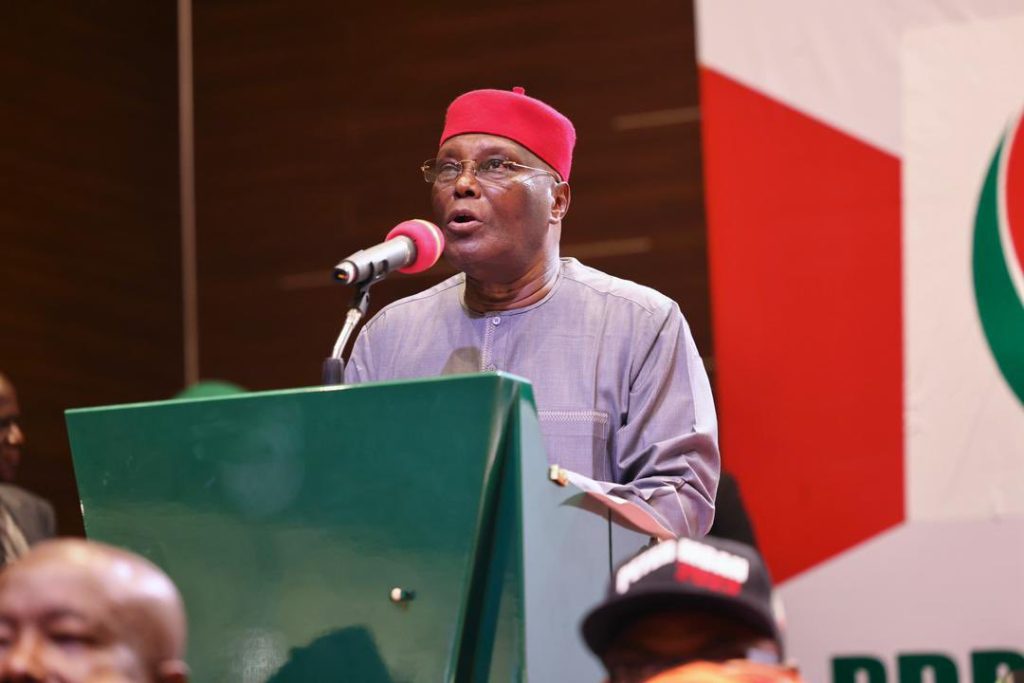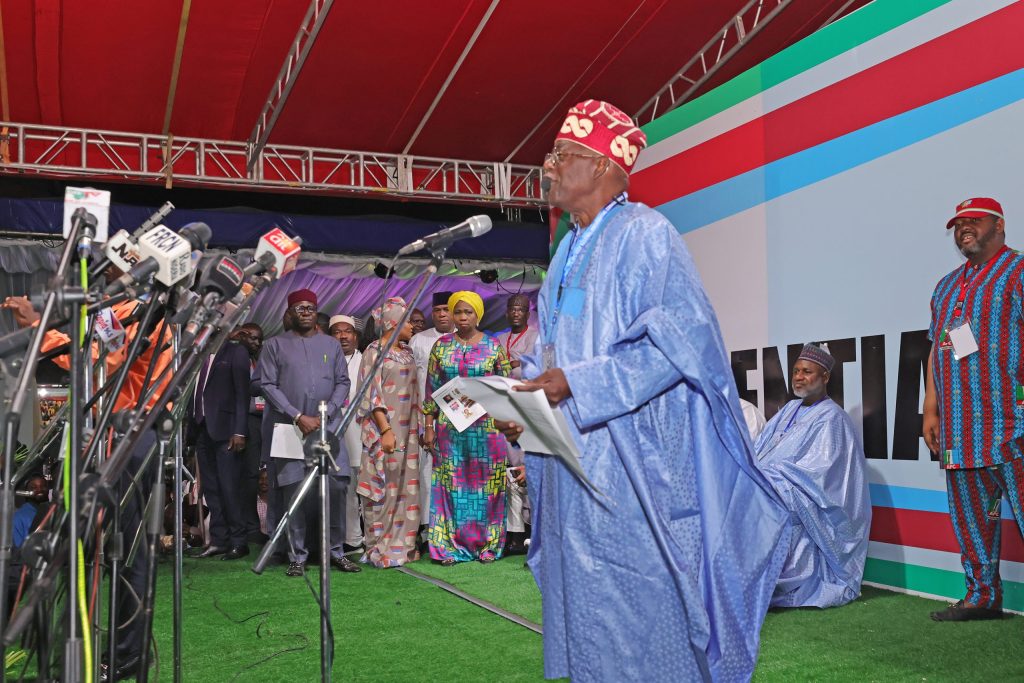Atiku Accuses Wike and Tinubu of Exploiting Nigerians’ Hardships for Political Gain
In a dramatic escalation of political tensions in Nigeria, former Vice President Atiku Abubakar has accused both Nyesom Wike, the Minister of the Federal Capital Territory, and President Bola Tinubu of using the suffering of ordinary Nigerians as a political weapon. This assertion comes amid ongoing economic challenges that have left many citizens grappling with rising costs and diminishing quality of life. Atiku’s comments highlight the urgent need for political leaders to prioritize the welfare of their constituents over personal or party interests.

Atiku’s statement, issued through his Media Adviser Paul Ibe, specifically targeted Wike’s recent remarks that questioned Atiku’s relevance in Nigerian politics following his defeats in the 2019 and 2023 presidential elections. “Wike and his T-Pain collaborators are playing politics with the suffering of Nigerians,” Atiku stated, emphasizing that such theatrics only serve to distract from the pressing issues at hand. He expressed concern that Wike’s focus on personal grievances detracts from addressing the real challenges faced by the nation.
Wike made his comments during a luncheon honoring the 10th Rivers State Assembly. He asserted that Atiku had been rejected by Nigerians due to his electoral failures. “If you say for an election we did not contest…that it shows Nigerians have rejected us, fine,” Wike said. “You that contested and failed woefully, Nigerians have rejected you, so pack up and go home.” This sharp retort underscores the personal nature of their rivalry and illustrates how political discourse often devolves into personal attacks rather than constructive dialogue.

The backdrop to this political drama is Nigeria’s current economic situation. Inflation rates have soared while unemployment levels have risen. Many citizens feel abandoned by their leaders as they struggle to make ends meet. In this context, Atiku’s assertion that Wike is more concerned with self-interest than with addressing these pressing issues resonates with a populace increasingly frustrated by empty promises and political maneuvering.
Atiku further criticized Wike’s approach, stating that his comments are “nothing more than a string of inanities” driven by bitterness from past electoral defeats. He emphasized that while Wike indulges in personal grievances, he remains focused on genuine issues affecting Nigerians. “If he truly believes Nigerians are content with the current state of affairs under the government he serves,” Atiku remarked, “it reveals a deeper truth: his priorities lie not with the people but with himself.” This sentiment reflects a growing disillusionment among citizens who expect their leaders to prioritize public welfare over personal ambitions.
Moreover, Atiku’s criticism extends to President Tinubu as well. He accused Tinubu of exhibiting despotic traits and failing to address the economic hardships faced by ordinary citizens. This accusation aligns with widespread perceptions that the current administration prioritizes power consolidation over addressing pressing national issues. The former Vice President’s comments serve as a call to action for all political leaders to redirect their focus towards meaningful governance rather than engaging in petty political battles.

The implications of this feud extend beyond personal animosities; they highlight significant challenges facing Nigerian democracy today—how leaders engage with their constituents during crises. As citizens become increasingly frustrated with empty promises and political theatrics, there is a growing demand for accountability and genuine engagement from those in power.
This ongoing saga between Atiku Abubakar and Nyesom Wike encapsulates not only their personal rivalry but also reflects broader issues within Nigerian politics—issues that demand urgent attention and action from all leaders involved.
As this political drama unfolds, it serves as a reminder of the critical role leadership plays in shaping public perception and trust. The electorate is watching closely how these leaders navigate their differences while addressing the pressing needs of their constituents. The question remains: will they rise to the occasion or continue to play politics at the expense of those they are meant to serve?
Ultimately, Atiku’s remarks resonate deeply within a society yearning for genuine leadership amidst adversity. The electorate is increasingly aware of the theatrics employed by politicians like Wike and Tinubu. As citizens grapple with daily hardships, they seek leaders who will prioritize their needs over personal ambitions or petty rivalries.
This ongoing confrontation between Atiku Abubakar and Nyesom Wike serves as an important chapter in Nigeria’s political narrative—one that underscores the need for accountability and genuine representation in governance. As the country navigates its economic challenges, it is imperative for leaders to step up and provide solutions rather than distractions.

